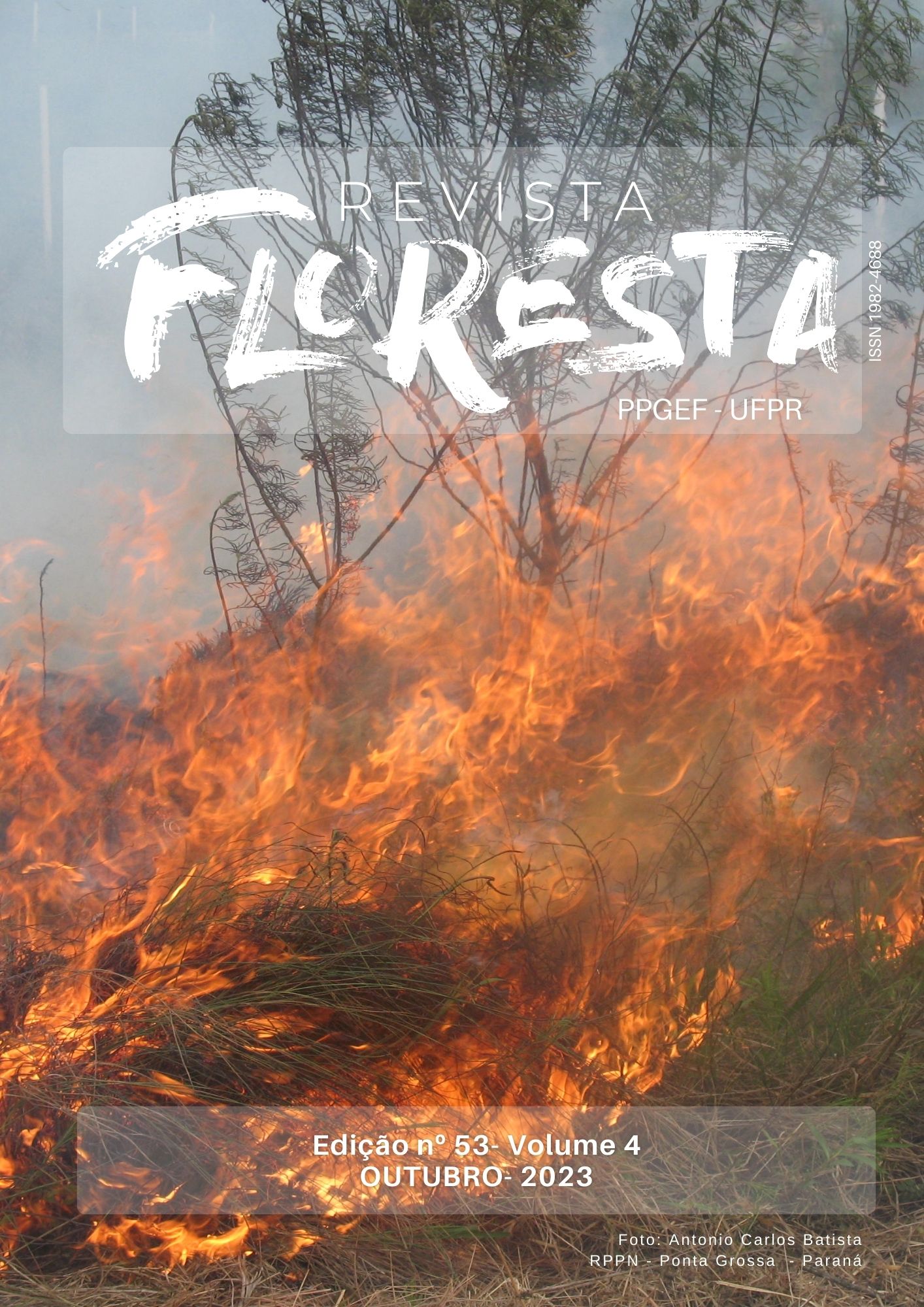UNCERTAINTY ASSESSMENT IN VOLUME AND BIOMASS ESTIMATIONS IN FOREST STANDS
DOI:
https://doi.org/10.5380/rf.v53i4.88833Palavras-chave:
Forest inventory, Error propagation, Wood quantification.Resumo
In Brazil, forest inventory variation is calculated independently, and model-related uncertainty is systematically ignored. Although methods of estimation evaluation and sampling uncertainty together are unknown in the country, they are indispensable for improving the results of forest inventories since obtaining high quality estimates is extremely important for the country, due to its large forest areas and distinguished for being a world leader in the supply of timber and non-timber forest products, and a reference as a provider of environmental services. In view of the above, this paper presents the following study hypothesis: “Considering the uncertainty associated with inventory components: i - sampling and ii - regression model combined in the total variance of the forest inventory results in more accurate volume and biomass estimates” Thus, the aim of this study was to evaluate the uncertainties associated with sampling and the linear regression model in volume and biomass estimates in Acacia mearnsii stands in Brazil. To jointly evaluate these two sources of uncertainty, the hybrid variance estimator was used, with an analytical approach. The results showed that if model uncertainty is not considered, the total uncertainty is underestimated by 6.51%. In biomass estimates, the total uncertainty is underestimated by 18.74%. Ignoring uncertainty in total estimates can lead to uninformed decisions in forest management, with economic implications, particularly in biomass estimates, where the associated variation is even greater than in volume due to the nature of this variable.
Downloads
Publicado
Como Citar
Edição
Seção
Licença
Direitos Autorais para artigos publicados nesta revista são do autor, com direitos de primeira publicação para a revista. Em virtude da aparecerem nesta revista de acesso público, os artigos são de uso gratuito, com atribuições próprias, em aplicações educacionais e não-comerciais.A revista, seguindo a recomendações do movimento Acesso Aberto, proporciona acesso publico a todo o seu conteudo, seguindo o principio de que tornar gratuito o acesso a pesquisas gera um maior intrcambio global de conhecimento.
Conteúdos do periódico licenciados sob uma CC BY-NC-SA 4.0



